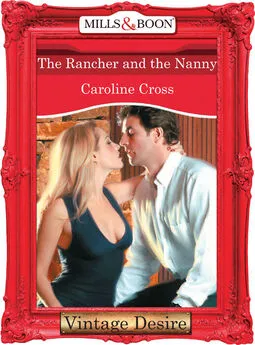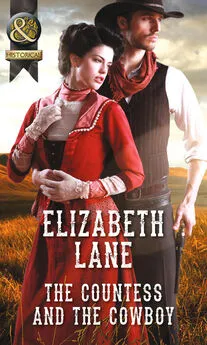John Creasey - The Toff and The Sleepy Cowboy
- Название:The Toff and The Sleepy Cowboy
- Автор:
- Жанр:
- Издательство:неизвестно
- Год:неизвестен
- ISBN:нет данных
- Рейтинг:
- Избранное:Добавить в избранное
-
Отзывы:
-
Ваша оценка:
John Creasey - The Toff and The Sleepy Cowboy краткое содержание
The Toff and The Sleepy Cowboy - читать онлайн бесплатно полную версию (весь текст целиком)
Интервал:
Закладка:
“Richard, you are more right than you know.”
“Possibly,” Rollison said. “I was once before, I’m told. What have I been prescient about now?”
“You shouldn’t have let me take Pamela home last night.”
Suddenly very still, Rollison asked: “Why not?”
Tommy told him the whole story, not once avoiding his gaze, and he finished by saying that he had just talked to Pamela’s father, and learned that Pamela was awake, and apart from having a stiff neck and a lump on the back of her head, was unharmed.
“Someone tried to choke the life out of her,” Tommy said bleakly. “He fixed me so that I didn’t even know what was happening. If you hadn’t made sure that the police and those friends of yours had followed, she would be dead. And I guess I would, too — he would have killed me after killing Pam.”
“You may well be right but no one was killed or seriously hurt, and things could have been a lot worse.” But the news added another question to those which already teased Rollison. Why try to kill him, why attack Pamela and Tommy, when it was so glaringly obvious that the impersonation attempt had failed?
Twice as they had been at the table the telephone bell had rung but Jolly had answered from the kitchen and not disturbed them. Now it rang again; and almost at once Jolly came in, to plug in a telephone so that Rollison could speak while at the table.
Rollison’s eyes asked: “Who?”
“Mr. Ebbutt, sir,” Jolly repeated.
“Ah, Bill!” Rollison spoke warmly into the telephone. “I hope you’re all right after last night.”
“Not so bad, Mr. Ar, not so bad at all,” said Ebbutt, his wheezing very pronounced. “Glad to hear from his nibs that you’re okay. Lucky you’re not in Kingdom Come, if you don’t mind me saying so. Mr. Ar, I got something on me mind about last night and I can’t get it off until I talk to you.”
“On the telephone?”
“If you could come over to the Blue Dog it would be better,” Ebbutt said. “Lil’s got a bad leg, Mr. Ar, and the doctor’s coming to see ‘er and I want to talk to him when he comes.”
“I’ll be over by one o’clock,” promised Rollison.
“I’ll be waiting for you,” Ebbutt declared. “So long.”
Then he added hastily: “You’ll come alone, woncher?”
“Yes,” Rollison promised.
Ebbutt rang off, leaving Rollison mystified and un-easy. Ebbutt was usually the most open-minded and frank of men; why was he reluctant to say all he wanted to over the telephone? Rollison replaced the receiver as Tommy stood up and poured himself more coffee. Every time he stood ‘to his full height it was startling. Rollison pushed his chair back and Jolly waited for both men to leave the alcove, then drew a curtain which divided it, when not in use, from the rest of the big room.
At eleven o’clock to the minute there was a ring at the front door bell, and Grice appeared on the periscope mirror. Rollison opened the door and sensed on the instant that Grice wasn’t pleased with life. What on earth had gone wrong with everyone this morning? Grice stood close to Rollison as the door closed, and said in a whisper:
“I want to talk in confidence, Rolly, not with Loman present.”
“If I know Loman, he will make his excuses as soon as you’ve said hallo,” remarked Rollison. The feeling of uneasiness increased, for Ebbutt had said much the same thing.
Only Jolly was in the big living-room-cum-study.
“Mr. Loman has gone to his room,” he informed them, “but he will be glad to join you if he should be needed.”
“Thanks,” said Rollison, and motioned Grice to a chair on the far side of the desk, while he sat in his padded swivel chair, back to the Trophy Wall. “I gather things went very badly last night,” he said to Grice.
“I don’t know how badly they went,” said Grice, gruffly. “Rolly — answer a straight question.”
“I will.”
“Do you think Pamela Brown and Loman knew each other before they met here?”
“I do not,” Rollison said flatly.
“Can you be sure?”
“No,” Rollison admitted. “I can only say that the moment they met they seemed to be dazzled by each other. Why?”
“How well do you know Pamela?”
“Not at all,” Rollison said. “You gave her and her father and brother a good reference last night though.”
“She is occasionally used by the family business as a decoy,” Grice told him. “She’s a lovely-looking woman and can switch on charm like an electric current. I’ve never had the slightest reason to suspect her or her family of anything unlawful, but —”
“Decoy for what?” demanded Rollison.
“Oh, I’m sorry. A wife may come to the Browns for evidence of a husband’s infidelity. Pamela gets to work on the husband. If he starts making passes then he’s probably a man who will fall by the wayside with any attractive woman. If he doesn’t but is seriously in love with someone else, then the Browns simply tell the wife they won’t handle the case. Don’t ask me to explain what makes them tick,” Grice went on irritably. “I can only tell you what I know.”
“I don’t really see what you’re driving at,” Rollison protested.
“I’m not really sure myself,” admitted Grice, ruefully. “Did Pamela make a dead set at Loman on meeting because she know’s he’s going to inherit the fortune? Or did she fall in love?”
“I don’t know her well enough to be sure but I think she fell head over heels,” answered Rollison. “I still don’t see how this affects the main issue.”
“I don’t suppose you do,” Grice growled. “I’m not even sure it does. But I have an uneasy feeling that the Browns could be more deeply involved in this affair than I’ve suspected. Last night’s attack could have been a fake.”
“What?”
“The brother or the father could have attacked Loman and then Pamela,” Grice said. “Her injuries are superficial, it could have been an attempt to convince us that she’s in danger. Rolly, I just don’t know!” Grice pushed his chair back and stood up. “But I’m worried out of my wits. There have been two attempts to kill you, and they weren’t faked. The Rubicon House might have been mainly an attack on you, also. The Browns involved you, and their reasons are pretty specious. I have a feeling that I’m working in a nice, thick, smelly, pea-souper of a fog.” He gave a short laugh as he approached the wall to a small shelf on which stood a single hobnail boot. “It was foggy in that case, wasn’t it? I’d only just joined the force, and you were only just getting known.”
“Bill,” Rollison said quietly. “All fogs disperse sooner or later.”
“Oh, yes.” Grice turned back and leaned against a corner of the desk, closer to Rollison. “A man was picked up in the grounds of the Browns’ house last night — an American policeman whose identity is beyond all doubt. He came over on the same flight as Loman because he thought Loman might be a victim of a big luggage stealing racket at Kennedy Airport. He really came on a kind of hunch. The thing is, Rolly —”
“Yes?” Rollison’s voice was sharp.
“These are damned dangerous days. Hi-jacking of aircraft, the blowing-up of aircraft and government and police buildings are commonplace. We’ve got what looks Re a case of impersonation to get a large inheritance, but the tactics used are the same tactics as those used by terrorists. Those hand grenades are now known to contain high explosive and powerful incendiary material much more powerful than they had originally. Can you tell me what’s really going on, Roily?” Grice asked, and then leaned forward and demanded in a hard voice: “If you have the faintest idea you’ve got to tell me. You can’t fight a war against terrorists on your own.”
17
Ebbutt Warns
ROLLISON WAS SO STARTLED that In back sharply enough to bump his head against a hangman’s rope which dangled on a swivel; someone had moved it from the wall. He half-turned, pushed it back, then faced Grice again.
“No,” he said. “I can’t and I know I can’t. I have seldom, if ever before, been involved in a case about which I’ve told you everything from the beginning.”
“Everything?” Grice echoed, dubiously.
“Everything. Bill, this may be an offshoot of a baggage racket at Kennedy Airport. It could be an extension of terrorist activities — it had the look of that from the beginning, but if it is, I’ve no advance knowledge of it. And we may have a simple case of attempted fraud on a scale big enough to warrant all the violence. Did Jolly give you that tape yesterday?” he added abruptly.
“Yes.”
“That is everything I can tell you,” Rollison asserted. “But it doesn’t make sense,” protested Grice. “They are trying to kill you.”
“I was vaguely aware of that,” Rollison retorted. When Grice did not respond, he asked: “Have you learned anything from the prisoner?”
“He is a man named Simms, much older than he looks when he’s on his motor-cycle,” Grice replied. But he can’t, or won’t, give us any help. He lives in a one-room apartment in Notting Hill, and had twenty-one more of the grenades stacked in a cupboard. He’s admitted the attacks, denies that he is being paid by anyone and says he’s a revolutionary who thinks that everyone who lives in Mayfair should be executed.”
“Do you believe him?”
“No. But it could be true.”
“Did he say why he threw the bomb at Rubicon House?”
“He says he followed you and had seen you in the room.”
Rollison felt a shiver run down his spine.
“I hope there aren’t many more about like him,” he said, heavily. “Is there any word at all about Hindle?”
“No,”
“Or the actor, King?”
“No.”
“How’s his wife?” asked Rollison.
“She’s still under sedation,” answered Grice. “She came round once, and said she didn’t know where her husband was, she hadn’t seen him for two days. The baby is perfectly normal in every way according to the doctors and nurses,” he went on with a faint smile. “We still haven’t a line on King, although we’re keeping a teletype machine and five telephones open for com-munication with the newspapers, who are being inun-dated with calls from people saying they’ve seen him in a hundred different places at the same time. One or two are from people who’ve known him in the theatre or socially, and we’re following these up, of course.”
“Yes,” Rollison said, heavily.
“What’s on your mind?” asked Grice, and when Rollison didn’t answer immediately he went on: “Do you think they killed him once they knew the switch of individuals couldn’t work? So that he wouldn’t be able to talk, I mean.”
“It’s possible,” Rollison admitted.
“It’s everything I would have called melodramatic nonsense,” said Grice. “More American than British.”
“After the Kray brothers and the Great Train Robbery I don’t see how we can say that,” objected Rollison.
“Is there anything else at all you can tell me?” asked Grice, tacitly accepting defeat on that
“Nothing, but Bill Ebbutt telephoned in a mysterious mood, wanting me to go and see him,” Rollison told the Yard man. “One of his chaps might have picked something up. I’m going over to find out.”
“It’s a waste of time saying ‘be careful’,” Grice sighed, standing up slowly.
“It’s probably not even possible in this affair,” replied Rollison.
He saw Grice out, then went back to the big room to find Tommy G. Loman coming from the passage which led to his room, a savage look on his face. Rollison thought for a moment that he was annoyed because Grice had not seen him, but the tall man said in a voice cold with anger :
Читать дальшеИнтервал:
Закладка:










